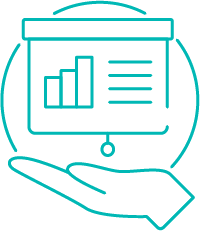-

Australian Research Data Commons (ARDC)
The Australian Research Data Commons (ARDC) enables the Australian research community and...
118 training material2 upcoming event (130 past event)Australian Research Data Commons (ARDC) https://ardc.edu.au/ https://dresa.org.au/content_providers/australian-research-data-commons-ardc The Australian Research Data Commons (ARDC) enables the Australian research community and industry access to nationally significant, data intensive digital research infrastructure, platforms, skills and collections of high quality data. As a national research infrastructure provider, the ARDC facilitates partnerships to develop a coherent research environment that enables researchers to find, access, contribute to and effectively use services to maximise research quality and impact. /system/content_providers/images/000/000/001/original/ARDC_Docusign_logo_-_296_x_76px_.png?1627455958 -

ARDC Community Connect
The ARDC's Community Connect program coordinated and supported community engagement activity to...
13 training materialARDC Community Connect https://zenodo.org/communities/ndacc https://dresa.org.au/content_providers/ardc-community-connect The ARDC's Community Connect program coordinated and supported community engagement activity to make researchers aware of, comfortable with, and equipped to take advantage of the infrastructure developed through the national data assets program. Specifically, ARDC is supporting National Data Assets projects in the development and delivery of workshops, training and e-learning materials, and a "community champions" model for their communities. -

EcoCommons
A Planet RDC project, EcoCommons is building a collaborative commons that is developing...
8 training materialEcoCommons https://www.ecocommons.org.au/ https://dresa.org.au/content_providers/ecocommons A Planet RDC project, EcoCommons is building a collaborative commons that is developing ecological modelling tools. It currently provides; access to point-and-click species distribution modelling (SDM) tools, projections of how those distributions might change as the climate warms, access to a variety of spatial data grids (rasters), and API connection to records from the Atlas of Living Australia. /system/content_providers/images/000/000/034/original/ecocommons-logo.png?1711521620 -

Open Ecoacoustics
A Planet RDC project, the vision of Open Ecoacoustics is to enable open science and conservation...
6 training materialOpen Ecoacoustics https://openecoacoustics.org/ https://dresa.org.au/content_providers/open-ecoacoustics A Planet RDC project, the vision of Open Ecoacoustics is to enable open science and conservation through the development and promotion of open access ecoacoustics technologies, methodologies and standards. We provide a dedicated ecoacoustics platform that is open to everyone, so that it can aggregate and share data, analyses and tools, and interoperate with downstream services. We support FAIR data by developing standardised metadata and third party analyses by moving to flexible workflow technologies (PBS, docker). We accelerate data analysis by publishing a shared repository of annotated datasets and recognisers. We interface to other systems, including TERN, ALA, EcoCommons and citizen science sites, through services and shared tools. /system/content_providers/images/000/000/035/original/Open_Ecoacoustics_logo.png?1712032933 -

Atlas of Living Australia
The Atlas of Living Australia (ALA) is a collaborative, digital, open infrastructure that pulls...
0 upcoming event (1 past event)Atlas of Living Australia https://www.ala.org.au/ https://dresa.org.au/content_providers/atlas-of-living-australia The Atlas of Living Australia (ALA) is a collaborative, digital, open infrastructure that pulls together Australian biodiversity data from multiple sources, making it accessible and reusable. The ALA helps to create a more detailed picture of Australia’s biodiversity for scientists, policymakers, environmental planners and land managers, industry and the general public and enables them to work more efficiently. The ALA is the Australian node and a full voting member of GBIF – the Global Biodiversity Information Facility – an international network and data infrastructure funded by the world’s governments and aimed at providing anyone, anywhere, open access to data about all types of life on Earth. /system/content_providers/images/000/000/017/original/ALA_Logo_Inline_CMYK.jpg?1652413583 -

Wildlife Insights
Wildlife Insights is combining field and sensor expertise, cutting edge technology and advanced...
1 training materialWildlife Insights https://www.wildlifeinsights.org/ https://dresa.org.au/content_providers/wildlife-insights Wildlife Insights is combining field and sensor expertise, cutting edge technology and advanced analytics to enable people everywhere to share wildlife data and better manage wildlife populations. Anyone can upload their images to the Wildlife Insights platform so that species can be automatically identified using artificial intelligence. This will save thousands of hours, freeing up more time to analyze and apply insights to conservation. By aggregating images from around the world, Wildlife Insights is providing access to the timely data we need to effectively monitor wildlife. We are creating a community where anyone can explore data from projects around the world and leverage data at scale to influence policy. Wildlife Insights provides the tools and technology to connect wildlife “big data” to decision makers. This full circle solution can help advance data-driven conservation action to reach our ultimate goal: recovering global wildlife populations. /system/content_providers/images/000/000/038/original/WI_logo_0.png?1715906285